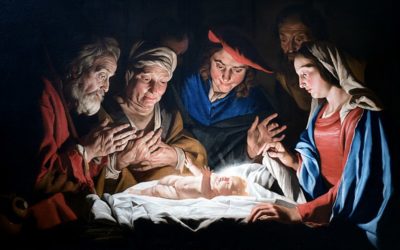Between February 27 and March 15, 1833, Joseph Smith received the revelations that now make up sections 89 through 92 of the Doctrine and Covenants. Section 89 includes the Lord’s health code known as the Word of Wisdom. Sections 90 through 92 deal with the First Presidency, the Apocrypha, and the United Order. This week’s Come, Follow Me article should help you understand all four of these sections better.
Doctrine and Covenants 89
A revelation received February 27, 1833, and known as the Word of Wisdom is among the best known sections of the Doctrine and Covenants. For excellent histories of the revelation and its application during the life of the Prophet Joseph Smith, click here and here.
For a detailed history and explanation of the Word of Wisdom over time and how its application has changed, you should read Paul H. Peterson’s master’s thesis, “An Historical Analysis of the Word of Wisdom,” the abstract of which reads as follows:
“The Word of Wisdom was announced by Joseph Smith as a revelation from God in 1833. The revelation prohibited the use of alcohol, tobacco, tea, and coffee. Its pronouncement came at a time when temperance movements were conspicuous throughout America.
“Interpretations and attitudes have changed toward the Word of Wisdom over the years. Before 1840 many Mormons considered abstinence important though Joseph Smith stressed moderation. Observance became lax as Mormons treked westward to settle Utah territory. Brigham Young stressed obedience to the revelation in the 1860’s but never made observance obligatory. Under John Taylor in 1883, a Word of Wisdom reformation began. Taylor stressed that Church officers should obey the revelation as did successors, Wilford Woodruff and Joseph F. Smith. None of them required rigid compliance for procurement of a Temple recommend. Heber J. Grant preached the Word of Wisdom with zeal and during his administration, strict observance became a criterion of orthodoxy. Attitudes have changed little since Grant’s time and today Word of Wisdom adherence is a distinguishing characteristic of Mormon society.”
The full thesis is available here.
For the Church’s Gospel Topics essay on this revelation, which includes updated links to the General Handbook and a 2019 statement on vaping, green tea, medical marijuana, and opiods, click here.
Doctrine and Covenants 90
The revelation that is today section 90 of the Doctrine and Covenants was received on March 8, 1833. This section continues the development of the office of First Presidency. For a good introduction to this section, click here.
Earlier sections of the Doctrine and Covenants had chastised Joseph Smith and let him know that he could be replaced if he did not repent. (See, for example, Doctrine and Covenants 3:4‒11; 43:4.) But Doctrine and Covenants 90:3 declares to Joseph, “Verily I say unto you, the keys of this kingdom shall never be taken from you, while thou art in the world, neither in the world to come.” In other words, Joseph had proved himself sufficiently to receive this promise.
Doctrine and Covenants 91
Like many Bibles printed at the time, the one Joseph Smith used for his translation project contained the Apocrypha, ancient sacred books not considered by many people to be part of the canon or accepted body of scripture. (To see the Apocrypha in Joseph’s Bible, click here.)
Joseph inquired of the Lord to know whether these books should be translated as part of his commanded project, and on March 9, 1833, he received the revelation that is now section 91 of the Doctrine and Covenants.
For more history on this section, click here.
Section 91 tells Joseph the Apocrypha contain “many things . . . that are true” and “many . . . that are not true” (verses 1‒2). Those who read it with the Spirit will know the difference (verses 4‒5). “Therefore,” the revelation concluded, “it is not needful that it should be translated” (verse 6).
Doctrine and Covenants 92
In the early Church, revelation created the United Firm, a group responsible for scripture publication and managing other assets. The name United Firm was later changed to United Order. Frederick G. Williams, who had been an assistant scribe to the Firm, was made a member of the First Presidency, and section 92, received on March 15, 1833, directed that he also be made a full member of this organization to oversee the Church’s financial and temporal assets. For further details on these matters, click here.
Interestingly, the Lord directed that Frederick be “a lively member in this order” (verse 2). It was not enough to be a member in name only, which is good council to all of us who are members of the Church and have callings.
Credit for image at top of post: Stock photo, depositphotos.com.



